- 16 Nov 2023

A Guide to Corporate Travel Management

Corporate Travel Management facilitates all business travel for customers, vendors, and partners where a range of tools may be used, including internet booking platforms, in-house teams recruited for the purpose, travel agencies, and others. Corporate travel management also honors established protocols and procedures along the journey while passing vital trip information over to accounts and finance. In today’s world, where ‘quick’ takes precedence, a business’s success depends upon how efficiently corporate travel is managed. However, it can be pretty intimidating for novices new to the market to navigate its complexities.
According to a recent report, 81% of organizations struggle with travel policy compliance. This blog aims to touch upon the intricacies of corporate travel management, helping travel managers improve the existing processes.
What forms the basis for Corporate Travel Management?
CTM or Corporate Travel Management involves the administration of employee travel end-to-end, from planning and organizing to overseeing activities along the way. A business travel program may be drafted to ensure that employees travel efficiently and, more importantly, safely while adhering to norms and guidelines involved in a journey. Additionally, the function involves arranging trips, making relevant arrangements with carriers and hospitality providers, and obtaining real-time information about expenses, which is passed onto accounts and other stakeholders of the program.
What does corporate travel management do?
The corporate travel management process requires several stakeholders in various roles to ensure effective travel.
Within the organization, we can find:
Policy and Business Facilitators – To stay up-to-date with travel regulations and provide relevant details to make reservations and report expenditures.
Travel Managers
To manage the network of travel agents, travel management companies, and other suppliers in the industry while also administering the corporate travel program.
Finance
Monitoring budgets and travel expenses and keeping track of the company’s bottom line while following reimbursements.
Risk management
Security teams take care of the safety of employees during their corporate travel and develop risk management protocols
Human Resources
To facilitate appropriate employee communication while also providing support with travel policy development
Technology
Adopting the right corporate travel management technology and systems and maintaining them for seamless journeys
Externally
The process involves travel agents and suppliers offering dedicated services and pertinent booking assistance outside the organization. Corporate travel management companies may join the fray to negotiate bookings and offer travel-related support.
What are the typical Corporate Travel Management Tasks?
The end-to-end needs of corporate travel management require tasks such as preparing itineraries, checking on pricing, booking accommodations, transportation, meetings and events, policy compliance, travel support, and, more importantly, data analysis and reporting.
Price
A crucial part of travel management and the most variable, stakeholders must keep costs within budget and choose optimal pricing with measurable impacts. The company must be able to fund more corporate travel without having to increase the budget. Guidelines for spending and costs may be set, and customized rates may be sought to keep travel as cost-effective as possible. Companies must rely on internal and external parties to manage pricing and bookings smoothly.
Drafting Itineraries
Different companies have different approaches when planning employee business travel. Cost is primarily taken into account, keeping in mind the employee’s professional obligations and the organization’s travel policies. Large firms mobilize staff from third-party travel agencies to design itineraries for senior executives who travel regularly. With a corporate travel management program, appropriate software with online booking capabilities across the entire journey can be set up. This way, passengers can follow policies and get a personalized, curated itinerary that best balances travel costs and reporting.
Transport
The best mode of transport is determined by the CTM team for any given route or destination. Employees choose preferred carriers that fall within the company’s rules and regulations.
Accommodation
Lodging costs depend on several factors and invariably fluctuate based on location, economy, and season. When significant variations are noticed, the corporate travel management team sets out to negotiate pricing, especially across larger hotel chains and popular lodging providers. Apart from expenses, the organization may also want to look into a variety of accommodation options that can help staff members amicably fulfill their work requirements; for instance, it may offer beneficial cancellation policies or waive specific fees.
Meetings
Businesses organizing their own meetings must fund lodging, restaurant facilities, convention halls, and other meeting spaces big enough to accommodate everything from closed board meetings to massive congregations. Whether in-house or outsourced, the corporate travel management team must find conducive locations to hold the gatherings in a way that facilitates the requirements and considers the event's financial constraints. If required, the team should visit the location (mainly if the event is large and noteworthy) to assess if the space, lodging, and transportation are suitable.
Policy Compliance
CTM teams set cost criteria in line with company rules and even monitor whether an employee adheres to them. Reimbursement policies are also linked to compliance, and systems are implemented to stop employees from arranging anything that goes against company policies. Flexible approval processes may be adopted to ensure exception handling. Corporate credit cards make travel planning easier, facilitate quicker reimbursements, and provide real-time information on employee expenditures.
Travel Support
Corporate travel management is a catalyst between accounts, supervisors, and other staff. Larger companies outsource the work as higher levels of support are offered, including meal reservations, transportation to the airport, and areas where passengers might require emergent help. Self-service tools are made available to employees to handle routine travel needs, except for VIP guests and top executives.
How to Automate Corporate Travel Management in your Organisation?
Companies have the option to automate corporate travel management with platforms offering a gamut of possibilities, such as expense management, analytics, project and client management, and much more, all in one platform. Teams can obtain real-time financial information and its impact on the company’s bottom line.
Top 5 Benefits of Automation in Corporate Travel Management
With an automated travel management platform for corporates, planning a business trip is easier than ever, and bookings are faster. Decision-making is quick due to transparent pricing and choices across the system. Immediate assistance is provided by in-built chatbots that address routine issues and inquiries. The employee is never left ‘unconnected,’ and recommendations begin appearing at every self-service process.
Report generation is also made easy, and predicting preferences becomes precise as a result of smart analytics while itinerary creation is hassle-free.
As a result, corporates can expect to have
- Better cost management
- Personalized travel experiences
- Enhanced risk management and reporting
- Quick expense reimbursements
- Efficient travel planning
Evolving Trends as a Result of AI in Corporate Travel Management
Business travelers seek complete access to trip information on their phones and laptops. With the days of manually filling out expense reports and planning trips long gone, companies can better assess their value when they can combine all data related to trip planning, costs, and staff’s time spent on the road. Technological advances are assisting businesses in ensuring they get the best possible outcomes, such as pricing, flexibility, and improved visibility.
Overall, AI is simplifying corporate travel management through integrated chatbot technology, facial recognition and robot concierge services. All of this make executive check-ins extremely easy with improved data mining techniques.
Recent Post
-
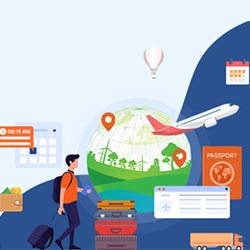
Sustainability in Travel : How travel technology drives eco-conscious tourism
25 Apr 2024
-
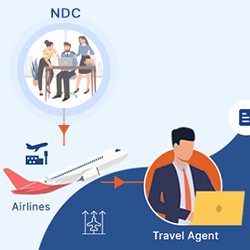
The Collective Power of NDC for Airlines, Agents, and Customers and its benefits in the travel chain
11 Apr 2024
-
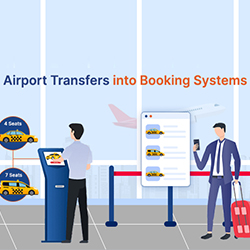
Streamlining Travel Experiences: The Importance of Integrating Airport Transfers into Booking Systems
27 Mar 2024
-
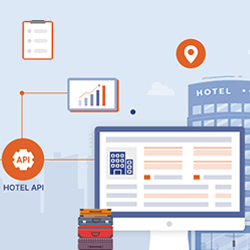
Hotel API Integration: Why it’s important for travel businesses
18 Mar 2024
-
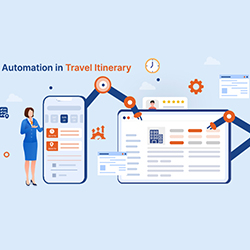
Automate the itinerary building process 5 reasons why travel agents need a travel itinerary tool
27 Feb 2024
-
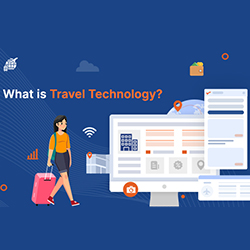
What is travel technology? An overview and its role in the travel / tourism industry
12 Feb 2024
-
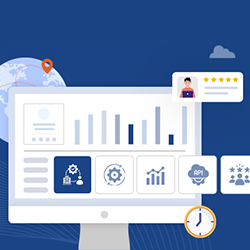
Why Every Travel Agent needs an Online Booking System in the Modern Digital Age
18 Jan 2024
-

The Role of Analytics in the Travel Industry
08 Jan 2024
-

How ChatGPT can improve the Travel and Tourism sector with it’s AI capabilities
26 Dec 2023
-

AI-powered Journeys: How AI is Reshaping the Travel Landscape this Holiday Season
22 Dec 2023
-

The Crucial Role of an Automated Mid-Back Office Solution for Streamlining Travel Operations
11 Dec 2023
-
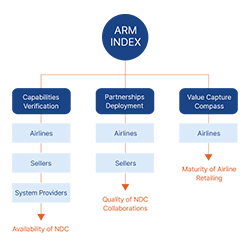
A Guide to IATA ARM (Airline Retailing Maturity) index
30 Nov 2023
-
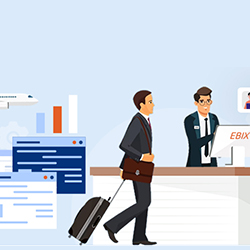
A Guide to Corporate Travel Management
16 Nov 2023
-
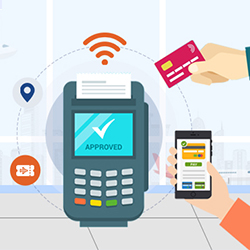
The Role of NFC in the Travel Industry
02 Nov 2023
-

World Tourism Day 2023: Unveiling the Future of Travel Technology
27 Sep 2023
-

How is AI emerging in the travel industry?
21 Sep 2023
-
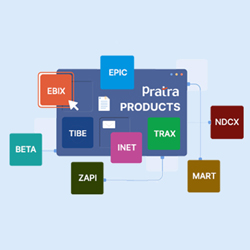
Pratra’s Innovative Travel Technology Products
04 SEP 2023
-

The Rise of Robots in Travel Industry and its Role in Enhancing Customer Experience
13 AUG 2023
-
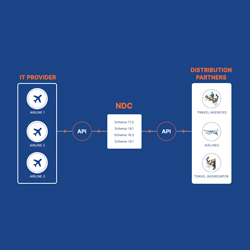
Difference between Conventional APIs and NDC APIs
01 AUG 2023
-
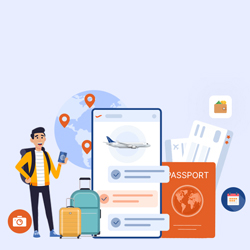
What is Travel API, and how can it help your business?
03 JUL 2023
-

Using AI to Empower Travel Advisors
05 Jun 2023
-
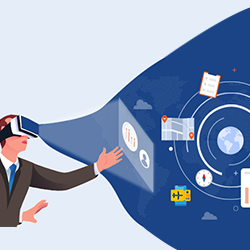
Top 5 Benefits of AR/VR Technology in the Travel and Tourism Industry
17 May 2023
-

Facial Recognition Technology and Contactless Check-ins in Modern Airports
05 Apr 2023
Let’s connect!
Our expertise is here at your disposal. We can’t wait to make use of it and help you succeed.

